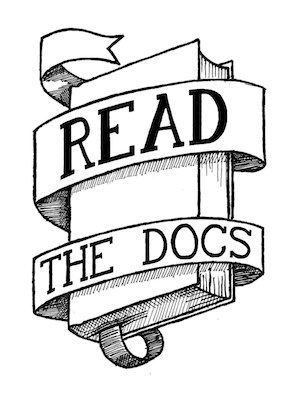Conference Mentorship¶
I have had the opportunity to provide mentorship to folks who have organized conferences twice in 2017. Through this process I have realized the value in this practice, and I’d like to write this to promote others to do to same for first year conference organizers.
I think this is a practice that would be very valuable to build inside the global Pycon & Write the Docs community conferences. Having a mentor who has done it before will make life much easier for the people putting together their first conference.
How to mentor¶
The most recent experience I had was doing this as PyCascades. Looking back, I would say the role could be defined as this:
Provide a working example of major documents that a conference needs (budget, volunteer & organizer schedules, sponsorship prospectus, conference schedule)
Provide perspective when people had questions about how to do something, or worrying about small details that wouldn’t matter. Focus the group on the right problems.
Play part-time cheer leader. Reminding people that we were doing great at something really hard, much better than a first-year conference had any right to be doing.
No major organizational tasks would be assigned to me
The total time commitment, outside of attending the actual conference, was around 25 hours over the entire calendar year.
The value provided¶
I believe the value in this was on a number a levels. One of the biggest was really psychological, I believe it put the other organizers at ease knowing I had done this before.
The major value that I provided as I see it was:
Having a starting point to work from, instead of creating things from scratch
Stopping additional work from happening that didn’t need to happen, based on my previous experience
Making people feel more confident that we could actually produce the event, making the entire thing possible in the first place
Reducing the amount of time spent stressing out over things that didn’t matter in the end
Examples¶
I think having a few examples would be useful here to really drive home the value.
Financial Aid¶
PyCascades was a first year conference. We were really worried about being inclusive and bringing in a diverse crowd. It was really hard to figure out how much to budget for financial aid, because it was dependent on how much sponsorship we got.
This was a major source of stress for the organizers, but I tried to provide perspective:
We’re a first year conference. Doing any financial aid is amazing, so we can’t beat ourselves up over not having enough!
We ended up having a great financial aid program that allowed folks to attend, but giving perspective really helped people feel good about what we were doing.
Sponsorship¶
Small conferences are often dependent on sponsorship to be great. We budgeted tickets to cover the basics like the venue, but depended on sponsorship for the nicer thing we were able to provide.
After a couple months of trying to get sponsors, the other organizers were feeling unsure about the response. It felt like nobody was going to sponsor and everything would be terrible. I knew that this was just part of the process and was able to resure folks:
It takes months for organizers to process sponsorship applications. This isn’t a simple purchase, but if we keep up the good work we’re doing, sponsors will come on board.
Thanks to the tireless effort of the entire team, we ended up with over 15 sponsors for a first year conference. But it didn’t feel that way from the start, and I was to show that it would just take time.
You should be a mentor¶
If you have organized a conference before and have a good grasp on the operations, you should help mentor another conference. It’s one of the highest leverage ways you can spend your time, if your goal is to help expand a community in the real world.
Next steps¶
I’d also love to open source the basic documents that I provided to the organizers of PyCascades from my work on Write the Docs. I think having a shared repository of basic conference starting documents would go a long way to making this a scalable system of organizing conferences, and allowing mentors to learn from each other over time. It’s all the same value that we get from open sourcing code, but for building a community in real life!


